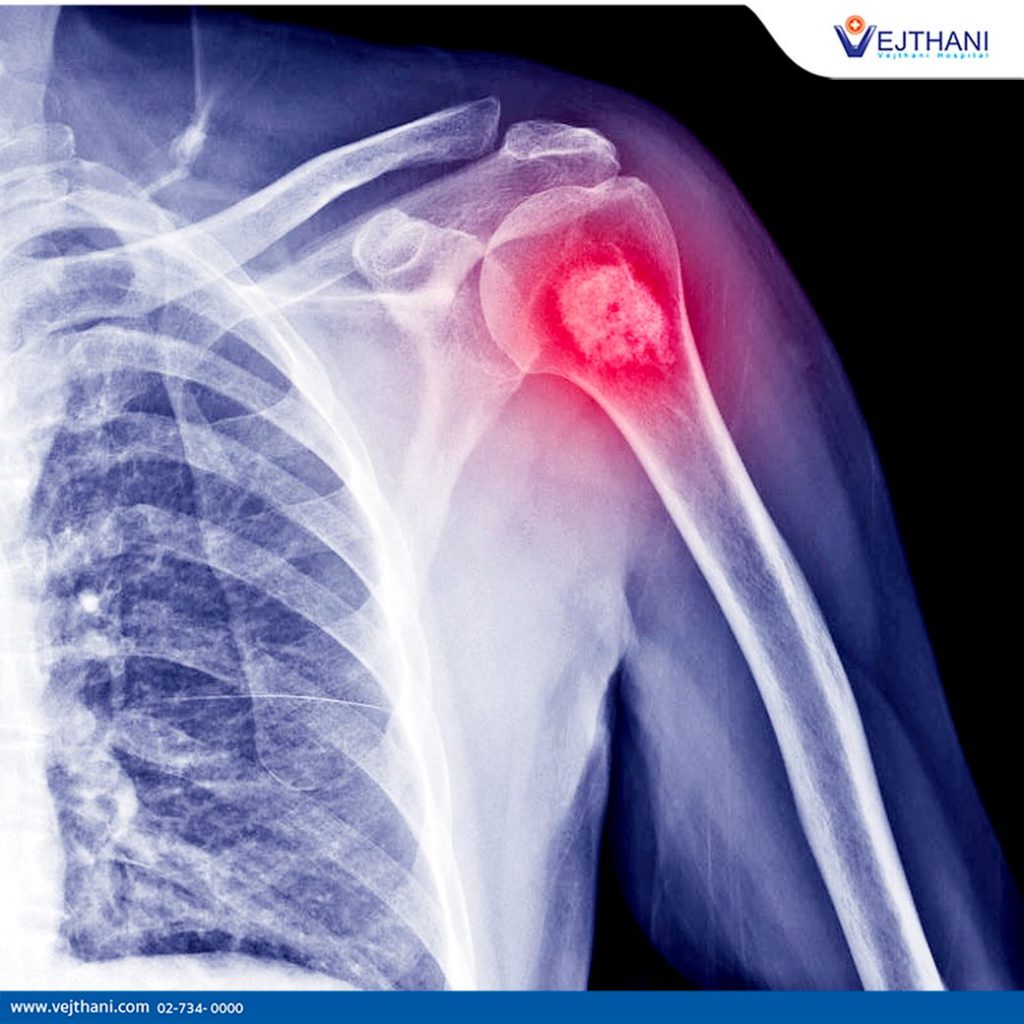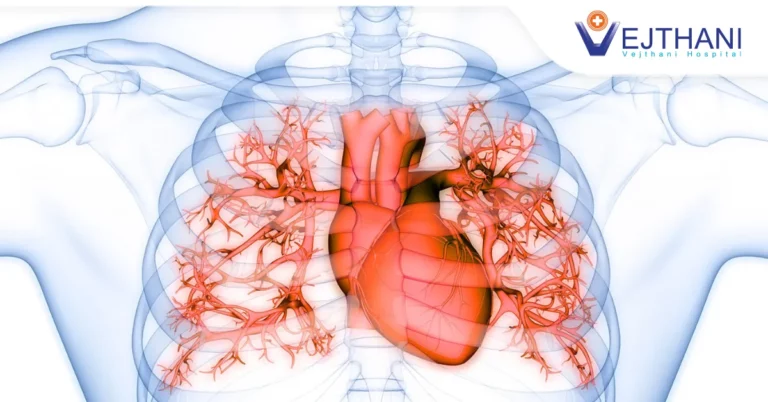

Knowing the symptoms of bone cancer can save your life. Although bone cancer is fairly rare, it can be debilitating if not caught in time. Knowing the symptoms of bone cancer can make your survival and ultimate recovery from the disease more likely.
Knowing the symptoms of bone cancer can save your life. Although bone cancer is fairly rare, it can be debilitating if not caught in time. Knowing the symptoms of bone cancer can make your survival and ultimate recovery from the disease more likely.
Symptoms of Bone Cancer:
- Bone pain in the long bones of the arms and legs
- Swelling and tenderness in the affected areas or abnormal bone deformity
- General sense of fatigue
- Weakened bones that are easily fractured
- Unaccounted for weight loss
- Bone pain at night
Bone pain can be attributed to many things. However, if it comes and goes over time, becomes worse at night, and over the counter medication doesn’t alleviate the pain, please make an appointment at Vejthani Hospital to see a doctor.
3 Most common Non-Hematologic Primary Bone Cancers:
- Osteosarcoma is the most common type of bone cancer. This produces abnormal bone growth in the arms or legs and pelvis of the patients. It mostly affects children, young adults and older people.
- Chondrosarcoma is the next most common bone cancer. The tumor produces cartilage in the pelvis, arms and legs of middle-aged and older people.
- Ewing Sarcoma is a fairly rare type of bone cancer. It produces tumors in the pelvis, arms and legs of children and young adults.
There is no one definite cause of bone cancer. It can be caused by genetics. Paget’s Disease of bone can increase the risk of developing bone cancer in older people. Undergoing radiation therapy is also cited as a risk factor for developing bone cancer later in life.
People who have symptoms of bone cancer are generally subjected to imaging tests to determine whether or not they actually have the disease. These imaging tests may include:
- Bone Scan
- X-ray
- Computerized tomography (CT)
- Magnetic resonance imaging (MRI)
- Positron emission tomography (PET)
Treatment
If your doctor confirms a diagnosis of bone cancer from the symptoms, imaging, lab work up and bone pathology , the treatment options will depend on the type of bone cancer you have, how large the tumor is and how fast it’s growing. Some cancers are treated with surgery alone, and some with combinations of surgery, chemotherapy and radiation therapy.
Bone tumors that are very large or located in a dangerous area may require a limb to be partially or totally removed. However, this situation is becoming less common as new treatments are developed. These days, removing the affected bone may be accomplished by replacing it with bone from other parts of the body, material from a bone bank, or titanium and hard plastic.
If you feel you have symptoms that point to bone cancer, please make an appointment with a doctor at Vejthani Hospital. Catching cancer early increases your chances of recovering from the disease.
Visit Vejthani Cancer Center
- Readers Rating
- Rated 459 stars
459 / 5 ( Reviewers)
- Your Rating



























